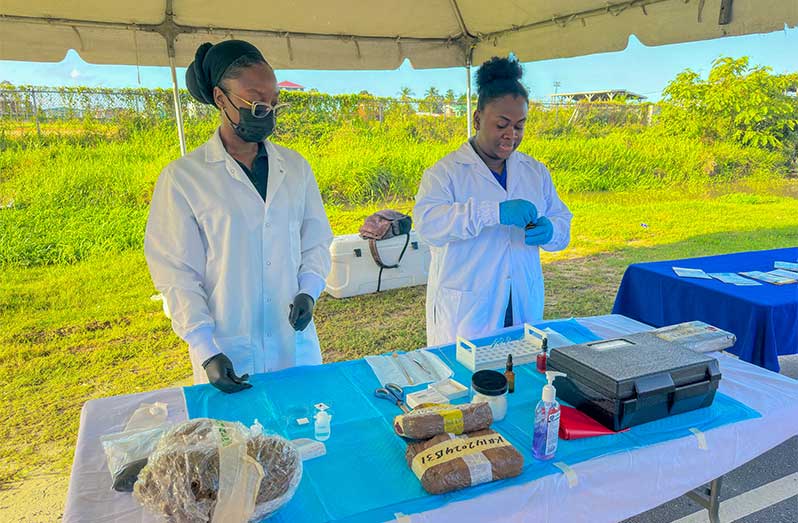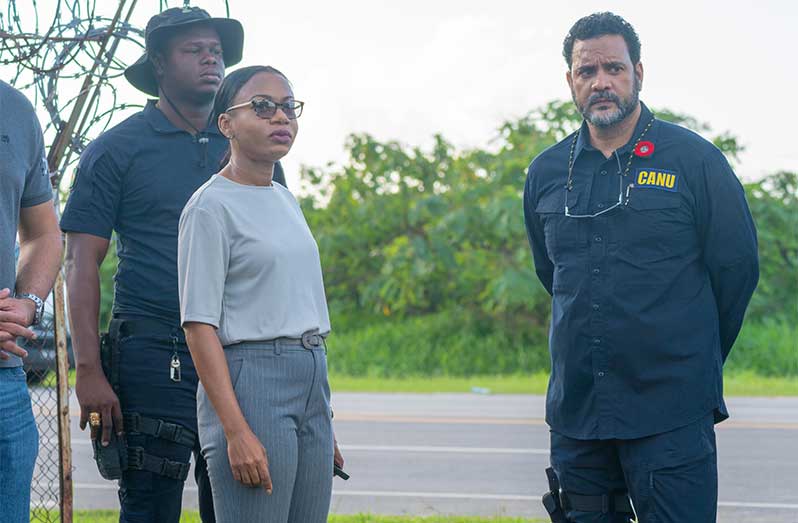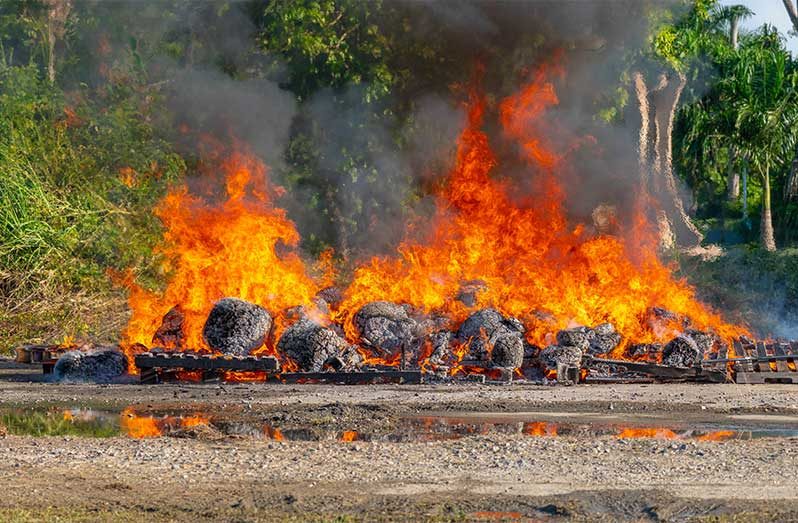THE Ministry of Home Affairs and the Customs Anti-Narcotic Unit (CANU) have reinforced Guyana’s zero-tolerance stance on the drug trade as more than GY $710 million worth of narcotics were destroyed.
The drugs, which included over 600 kilograms of cocaine and nearly 310 kilograms of marijuana, were burned during a CANU exercise at Homestretch Avenue on Saturday morning. The destruction, officials said, marks the conclusion of several completed court cases and sends a clear message to drug traffickers that Guyana remains firm in its zero-tolerance approach to the illicit trade.

Speaking to members of the media, Minister of Home Affairs, Oneidge Walrond, noted the impact and importance of the exercise, highlighting the work being done by CANU. Moreover, Minister Walrond noted that the drugs are products of cases that have been completed.
“The cases have been completed, so that’s an important thing to note, that these are matters that have already gone through the courts, and these are exhibits, and they are now going to be destroyed,” the security minister said.
According to Minister Walrond, the destruction exercise also sends a clear message to those who are part of the drug trade seeking to use Guyana as a place of illegal business.
“What it does is send a very strong signal to traffickers, because these, most of the drugs, are meant for transhipment, [and] that Guyana is not the place to make this kind of investment, because…this is hundreds of millions of dollars going up in smoke, literally.”
The minister added, “Guyana is very serious about our country being used as a transhipment point, and we will seize and destroy your drugs, and what drug traffickers will consider a great investment is going up in flames.”
Meanwhile, head of CANU, James Singh, shared similar sentiments, placing the destruction in the wider context of CANU’s stepped-up interdiction work and international co-operation. Singh said most of the consignments were destined for transhipment, primarily to Europe, parts of the Caribbean and West Africa.
While locally, the drugs have been valued in the millions, Singh said international street value could mean that more than a billion Guyana dollars’ worth of drugs were destroyed.
“The price varies according to the specific country, but suffice to say that we have over a billion Guyana dollars’ worth of drugs being destroyed this morning,” he stated.
This, Singh said, highlights that seizures took place despite the country’s porous borders.
“It clearly shows that, despite the fact that, as it’s labelled, that we have porous borders, we’re still intercepting the drugs when they get into the country and preventing it from being further transhipped, whether it’s off the coast of Africa, Europe, or even the United States.

“This is a clear indication that, with the support of the government, both police and CANU are continuing to fulfil their mandate, and the fact that we have not seen seizures outside of Guyana is a demonstration that what we’re doing is effective.”
Singh emphasised that the destruction follows careful forensic testing and ministerial approval, not ad-hoc decisions. As he explained, the process for drug destruction was overseen by both CANU and ministry officials.
“In addition to that, like the police force, before the drugs are destroyed, we would write the minister, getting approval and updating the minister on the status of the cases. It’s not randomly selected, and as you can see, it still has the wrappings, which was what was presented in court.”
Pointing to recent seizures across the country, Singh said the exercise was part of a broader campaign combining supply reduction with community outreach.
“Just last night, we had another seizure involving a foreign national and a Guyanese, where drugs were coming in. We managed to intercept it before it was for the transhipment. We’ve had seizures in Lethem, we’ve had seizures in Berbice,” he said, noting the role of international partners.
“A lot of the cases that we’ve seen here are as a result of close co-operation with our colleagues from Suriname, the United States DEA, and the French.” Singh also took the opportunity to send a blunt warning to traffickers: “as the minister said, we want to highlight the fact that Guyana is a place not to do business. If you try to bring it in, we will stop it.”



.jpg)








